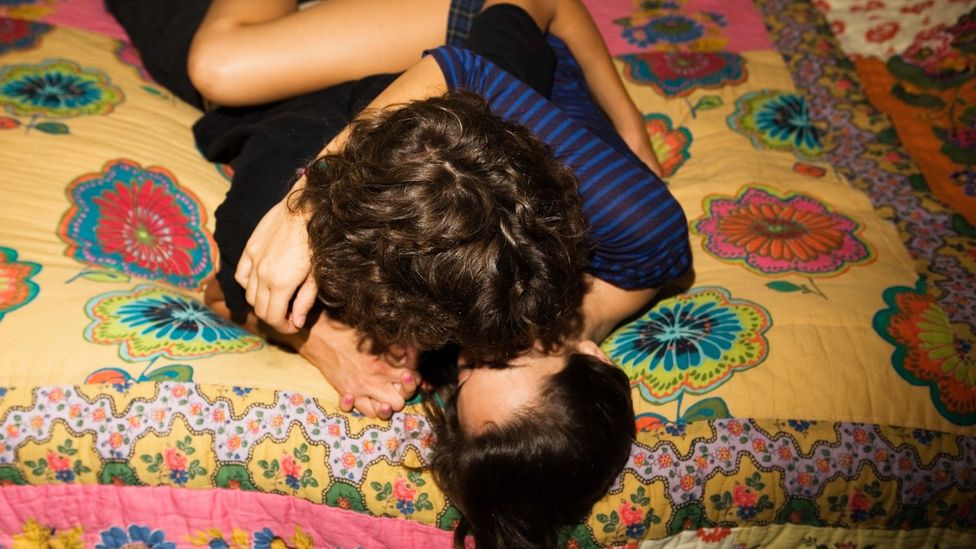the term ‘virginity’ outdated – or even obsolete? Some experts argue we need a workable alternative to discuss our early sexual experiences. Feminists note virginity traditionally frames female sexuality as a treasure, gift or memento to be ‘given’ by women, ‘taken’ from them or simply ‘lost’. Sex educators note traditional narratives around virginity often fall […]
the term ‘virginity’ outdated – or even obsolete? Some experts argue we need a workable alternative to discuss our early sexual experiences.
Feminists note virginity traditionally frames female sexuality as a treasure, gift or memento to be ‘given’ by women, ‘taken’ from them or simply ‘lost’. Sex educators note traditional narratives around virginity often fall short of reflecting many people’s experiences of intimacy. Queer advocates note the entire notion of virginity is heteronormative and inapplicable to many non-heterosexual experiences.
Yet however many may agree the idea is a problem, few have offered workable alternatives. But last year, Nicolle Hodges, a self-described “sexual freedom philosopher” from Toronto, Canada, began offering a rebuttal to the idea of virginity she believes has potential.
Her idea began with Dr Seuss. In 2020, Hodges released Oh, the Places You’ll Go Oh Oh!, an impish, Seuss-style book about the power of female orgasms, written in verse and celebrating a life of expanding sexual exploration. In framing sexuality as a journey, Hodges realized she needed a departure point. But the traditional starting point of virginity struck Hodges as obsolete, especially amid her project about sexual expression and liberation, female empowerment against patriarchal expectations and the expanding array of gender norms.
“We still have this old, rickety word that encapsulates what’s supposed to be an expansive time,” says Hodges. “It’s such a limiting idea, and a limiting phrase.”
In its place, she substituted a new idiom: “sexual debut”. It was hardly the term’s first use, but Hodges found it fit the Seussian tone of her work. Expecting it to be nothing more than an evocative phrase, she says she was surprised when readers began to ask her to expand upon the idea.
We still have this old, rickety word that encapsulates what’s supposed to be an expansive time. It’s such a limiting idea, and a limiting phrase – Nicolle Hodges
With that, Hodges used her following as a sex-positivity influencer to launch a campaign suggesting sexual debut as an alternative to virginity. She followed a popular series of Instagram and Twitter posts on the subject with a highly successful Kickstarter appeal to print sweatshirts endorsing the shift. The next phase of the campaign includes releasing a crowdsourced jingle to advertise the idea as well as a series of video interviews in which people react to the notion of sexual debut.
The social-media response to her campaign to date has proved to Hodges that she can lead a different conversation about early sexual experiences. Though the idea was met with some criticism, the responses overall have been ones of gratitude. For many who shared or endorsed Hodges’ work, virginity as a concept felt less relevant to them and their experiences. The lens of sexual debut, by contrast, offered a new perspective from which they could see themselves and others as sexually autonomous individuals each forging their own path through intimacy.
In Hodges’ framing, sexual debut offered a simpler and more direct description of early sexual experience – one Hodges hopes will be more inclusive and empowering.
How ‘sexual debut’ has evolved
As a term, the sexual debut has existed for decades. At its inception, the sexual debut was a clinical term intended to replace ‘loss of virginity, says Laura M Carpenter, an associate professor of sociology of Vanderbilt University in Tennessee, US. Carpenter is the author of Virginity Lost: An Intimate Portrait of First Sexual Experiences as well as numerous peer-reviewed articles on virginity.

Traditional narratives around virginity actually don’t represent many young people’s experiences today, experts say (Credit: Getty)
“‘Sexual debut’ certainly shows up in multiple academic publications in the 70s and 80s about what was then seen as the ‘epidemic’ of teen pregnancy and STIs,” she says. “It shows up as a euphemism for first vaginal sex. At the time, a publication might have said ‘virginity loss’, but I think ‘sexual debut’ was meant to be sanitised. In the 80s and 90s, the term becomes ‘first coitus’ or ‘first vaginal sex’. They explicitly say it because it’s more accurate.”
Defining terms is important for Carpenter, who has charted the shifting meanings of terms including ‘sex’. Carpenter says she’s used the terms virginity and loss of virginity in her work precisely because she was looking to address the language most people used for the experience. However, she’s aware that morally loaded language used to euphemise sex is rarely precisely defined. When she began her doctoral research in the mid-1990s, research suggested different peer groups in the same high school could have totally different definitions of what constituted sex. This meant a term like loss of virginity could be defined in any number of ways – and in many cases, the definition was morally volatile and linked closely with shame.
Hodges’ campaign, expressly intended to undermine such moralizing and shame, defines the term sexual debut expansively, in a way that “doesn’t reinforce that virginity is the end of a journey or a transition itself”. Instead, she says, it reinforces the idea that your sexual debut is something that happens many times and in many ways throughout your life. “It’s not just replacing virginity with a new term – it’s saying virginity is a concept that doesn’t exist, because your sexual journey never ends.”
That’s a sexual debut: it’s one of the moments in your life that are profound shifts in your understanding of yourself, and your becoming a person – Nicolle Hodges
As such, Hodges’ sexual debuts are profound personal shifts that are principally emotional and reflective. “It can be the moment where you, as a girl or woman, kissed another woman and felt your whole body light up and something clicked inside you,” she says. “That’s a sexual debut: it’s one of the moments in your life that are profound shifts in your understanding of yourself, and your becoming a person. When sexual debut is seen as something that can happen multiple times, in multiple ways, at any age, that takes off this pressure that a ‘first time’ has to mean, or define, or suggest at all what the rest of your sexual journey might be like, or with whom you’ll have it.”
Too simple?
As Hodges’ campaign took off on social media, Julia Feldman-DeCoudreaux was sceptical. The Oakland, California-based sex educator worried the simplicity of the messaging: the sweatshirt simply presenting the word virginity struck out and replaced with sexual debut recalled the euphemistic origin of sexual debut in academic language. This didn’t go far enough towards recognising virginity as an obsolete idea.
“When we’re looking for an alternate term, we’re still engaging in a dialogue about a concept that is highly flawed,” says Feldman-DeCoudreaux. Even accounting for Hodges’ definition of sexual debut as one of any number of individual beginnings, she says there remains a structural flaw built into the language we use to discuss sexual experiences.

Reframing how we describe early sexual experiences could be both empowering and inclusive, Nicolle Hodges believes (Credit: Getty)
“When you use a term like virginity – or sexual debut – you’re necessarily defining a person’s sexuality in the context of being intimate with another person. It requires partnered sex to define a person’s sexual experience and identity,” explains Feldman-DeCoudreaux. “If we’re defining it that way, we’re setting a lot of people up for confusion and failure and disappointment. The logical extension of that is that one’s ability to feel sexual pleasure, or to feel sexually satisfied, must also require someone else’s involvement.”
Feldman-DeCoudreaux is frequently contacted by adults who tell her, “my partner doesn’t make me orgasm”. She stresses this is the product of presuming one’s sexual pleasure or experience is dependent on one’s partner creating those things. “It renders us very passive and alienated from our identities and our sexualities,” she says.
Yet she agrees with Hodges that the notion virginity on the whole is problematic for many reasons.
“We have an obligation to rethink this stuff, because it would create a much better experience for all of us if we could abandon these harmful notions,” says Feldman-DeCoudreaux. “We have to move past virginity as a problematic concept. The problem is the notion that our sexuality has an onset, that there’s one time where it suddenly becomes real. That’s invalidating: what about the rest of our lives? What about the rest of the pleasure we experience? What about the other eye-opening experiences we’ve had? Do those not count?”
Not just about ‘one moment’
For those hoping to atomise the concept of virginity entirely, Carpenter says that societies tend to memorialise many first events, which represent a transition in status, such as the birth of a first child, a child’s first day of school and so on. It’s possible first sexual experiences will remain socially important events—yet Carpenter says our expanding understanding of sexuality may nonetheless contribute to the erosion of the idea of virginity.
The problem is the notion that our sexuality has an onset, that there’s one time where it suddenly becomes real – Julia Feldman-DeCoudreaux
While we might use a single event – the problematic loss of virginity – to denote the transition from sexually not-active to sexually active, Carpenter says “most people gradually add all sorts of sexual stuff to their repertoires, and whatever they call or understand to be ‘virginity loss’ is probably nestled in among a whole bunch of other sexual behaviours”.
For that reason, Carpenter sees potential in ideas like Hodges’ and Feldman-DeCoudreaux’s, because societies change, and people can learn to place waning emphasis on ideas that used to seem universal and true.
“I certainly think we could dissociate the idea that virginity is somehow one moment when you flip a switch and everything changes,” she says. “That’s generally not even accurate for most people, and people for whom that’s accurate, it may be because socially we’ve built it up to be that way. If we didn’t make a big fuss out of it, would it be a big fuss?”





































































